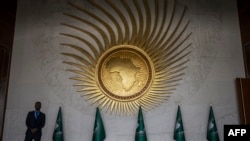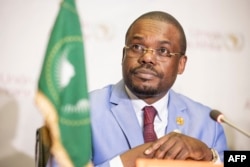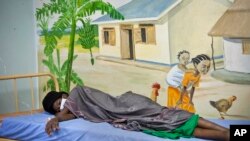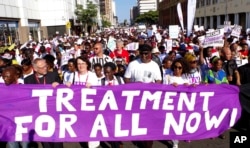Launched in 2003, the President's Emergency Plan for AIDS Relief, or PEPFAR, is a major funder of HIV testing, counseling and life-saving treatment worldwide.
The program until recently has enjoyed near universal support in the U.S. Congress.
But lawmakers have failed formally to renew the scheme for another five years due to the hot-button U.S. issue of abortion.
African leaders "will send a strong message for the re-authorisation of PEPFAR," said Jean Kaseya, head of the Africa Centers for Disease Control and Prevention (Africa CDC).
"We need to accelerate this agenda. Statistics are showing us that every day young people are affected," he told reporters on the sidelines of the AU summit in Addis Ababa.
"Losing our young people means killing our economy and stopping our development."
The program, launched by former U.S. president George W. Bush, contributes $16 billion each year for Africa's anti-AIDS response, Kaseya said.
It has been credited with saving millions of lives but health advocates worry that cutting back aid is putting those gains at risk.
The United Nations says the HIV prevention response is 90 percent short of the amount needed by 2025.
As of 2022, there are 39 million people around the world living with HIV, according to the UN AIDS agency. Of them, 20.8 million are in eastern and southern Africa.
But out of the 39 million, 9.2 million do not have access to life-saving treatment. Those missing out include more than 600,000 children.
The UN first set out in 2015 the target of ending AIDS as a public health threat by 2030.
Kaseya said Africa was still on course to achieve that target, adding that the continent would organise a summit later this year to discuss funding.
"We are committed to this agenda and will do our best," he said.
Without re-authorisation, PEPFAR will not automatically end, with funding still in the pipeline, but supporters say that health providers and other donor nations need assurances on long-term U.S. commitment.












Forum